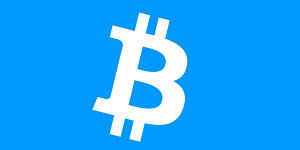
The Sports Bank
Football. Soccer. Basketball. Gaming and Much More
By 
With the Nations League group stage wrapped up and eyes turning toward the 2026 World Cup, all attention now shifts to the European Qualifying draw scheduled for December 13. For England’s newly-appointed manager Thomas Tuchel, this will mark the beginning of his first major campaign with the Three Lions. After securing a resounding 5-0 win over the Republic of Ireland, England heads into the draw as one of the top-seeded teams in pot one.
Tuchel’s England will face an intriguing challenge as they are placed among the heavyweights of European football, including Spain, France, and Germany, in pot one. Each nation in this pot represents a powerhouse, all keen to dominate their respective groups. However, England will also have their sights set on Wales, who find themselves in pot two after topping their Nations League group and earning promotion to League A.
The draw will not just dictate England’s immediate opponents but will also determine the potential for historic clashes. Nations like Poland, Turkey, and Sweden—nestled in pot two—offer exciting possibilities for fierce competition. Meanwhile, pot three presents its own complexities, with Scotland, Northern Ireland, and the Republic of Ireland lying in wait. For Tuchel, who is used to high-stakes environments, navigating this mix of old rivalries and new challenges will be critical.
You might be faced with a tough decision on which team to place bets on when it comes to following games vigorously. Luckily, some sites can offer AI-driven software that can predict the outcomes of matches all over the world. AI takes into consideration every aspect of the game, history being just one of them (Source: https://betideas.com/).
The 2026 World Cup will expand to include 48 teams, with UEFA contributing 16 representatives—a notable increase from the 13 teams who competed in 2022. To secure their place, European nations must traverse an extensive qualification process, beginning in March 2025. England, along with the other group winners, will aim for direct qualification by topping their groups. However, for group runners-up and select Nations League performers, the journey may extend into the playoffs set for March 2026.
This format underscores the importance of consistency throughout the qualification campaign. While top seeds like England have the advantage of being drawn into groups where they are expected to dominate, underestimating lower-ranked opponents could be costly. Smaller nations, buoyed by their performance in the Nations League, will relish the opportunity to cause upsets, making every fixture a potential pitfall.
The Nations League still plays a significant role in shaping the road to the World Cup. Rankings derived from the 2024/25 edition of the competition will provide a safety net for some teams. The four highest-ranked group winners who do not secure automatic qualification will gain entry to the play-offs, which will add another layer of strategy to the qualification journey.
For Tuchel and England, the Nations League’s implications extend beyond mere rankings. The competition serves as a litmus test for the squad’s depth and resilience. Although England’s immediate focus is on qualifying, strong performances in both tournaments will be important in building momentum for the World Cup itself.
Taking charge of a national team comes with unique challenges, especially for a manager like Tuchel, whose career has been defined by success in club football. However, England’s deep talent pool offers him the chance to imprint his tactical acumen on the squad. The draw will serve as an early indicator of the scale of the task ahead.
A favorable grouping could allow Tuchel to experiment with strategies while maintaining control over the qualification process. On the other hand, a challenging draw might demand immediate results, testing his ability to adapt and unite a team that has often struggled under the weight of expectations.
Filed Under: Football/Soccer 





